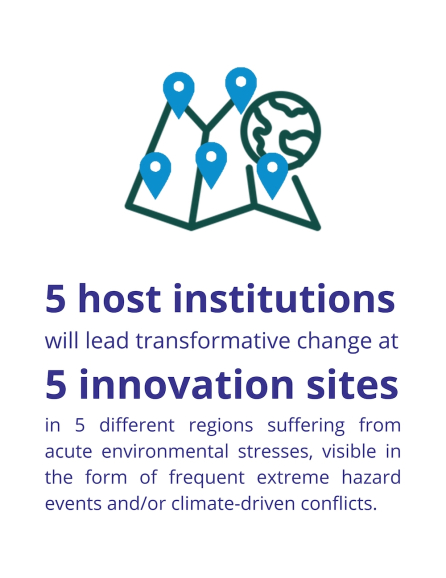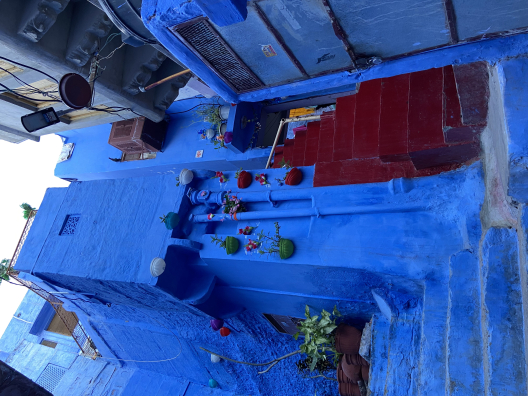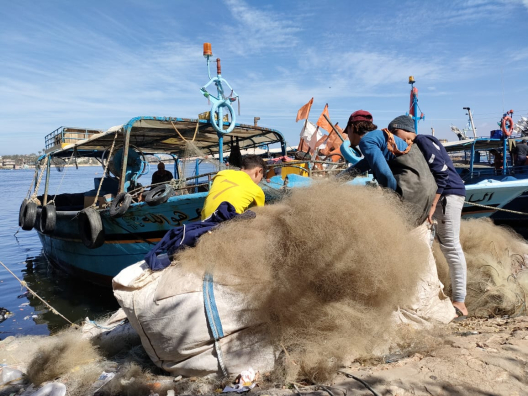Net Zero: Heritage for A Collective Journey of Learning and Resilience
Recognizing that climate change is a complex crisis rooted in historical inequalities and unsustainable practices, ICCROM launched the Net Zero: Heritage for Climate Action project to harness Indigenous and traditional knowledge in the battle against climate change. Supported generously by the Swedish Postcode Foundation, this two-year initiative is part of ICCROM’s FAR (First Aid and Resilience for Cultural Heritage in Times of Crisis) programme aims to establish a global framework for assessing climate-related risks to both heritage and communities.
Structured in four phases, the project provided each team with seed grant and was paired with a mentor, referred to as a "Sherpa" to ensure inclusive and rigorous research.This led to the creation of five “climate-culture stories” in Brazil, Egypt, India, Sudan, and Uganda, each addressing local disaster risks and utilizing Indigenous knowledge to develop climate adaptation strategies. The teams then convened in Rome and Cinque Terre, Italy, to shape these insights into culture-based climate action plans. Together with 25 experts from over 20 fields—including disaster risk reduction, cultural heritage, food security, and environmental economics—they designed and tested these adaptation strategies on-site.
In its final phase, the project engaged diverse Indigenous and local communities to advance people-centered climate action, including the historic city dwellers of Jodhpur, India; the Bakonzo in Kasese, Uganda; fishermen and farmers in Rahsih, Egypt; TAYA-flood management practitioners in Tuti Island, Sudan; and the Quilombolas in Ubatuba, Brazil. Working with UNICAMP in Brazil, GRRID Corps in India, the Egyptian Heritage Rescue Foundation, the Sudan Urban Development Think Tank, and the Cross-Cultural Foundation of Uganda, the initiative strengthened disaster resilience, cultural heritage protection, and sustainable development for vulnerable populations.
The completion of this project marks a significant milestone in the collective effort to understand and address the impacts of climate change. By centering Indigenous voices and traditional practices, the initiative not only documented invaluable knowledge but also strengthened the resilience of communities facing climate threats. This project underscores the vital role that cultural heritage plays in fostering innovative solutions to contemporary environmental challenges.
The Heart of the Project
As we unveil these exciting stories, we celebrate the collaboration that made it possible. The special edition of the Journal of Cultural Heritage Management and Sustainable Development is a tribute to the voices of Indigenous communities, researchers, and practitioners dedicated to forging new paths in climate action.
We invite you to dive into these stories, engage with the findings, and join the dialogue on the vital role of culture in shaping a sustainable future.
Moving forward
ICCROM is committed to scaling up these heritage-based climate action efforts and sharing its methodology for implementing concrete on-the-ground actions that manage climate-related risks to heritage while leveraging traditional and Indigenous knowledge for climate change mitigation, adaptation, disaster risk reduction, and peacebuilding. To broadly disseminate these outcomes, ICCROM-FAR has organized a three-day international conference (for more details, visit: 'Heritage Based Climate Action' - An International Virtual Conference | ICCROM ), and is developing a comprehensive tool for climate risk management applicable to all forms of heritage - Coming up next year: ICCROM-FAR's comprehensive tool on climate risk management for heritage | ICCROM
We invite you to partner with FAR in supporting initiatives focused on heritage-based climate action! If you're interested in collaborating to develop capacity-building projects that strengthen community resilience and protect cultural heritage, please contact us at far_programme@iccrom.org.
Join us in this journey toward a sustainable future for cultural heritage and the communities that protect it!






